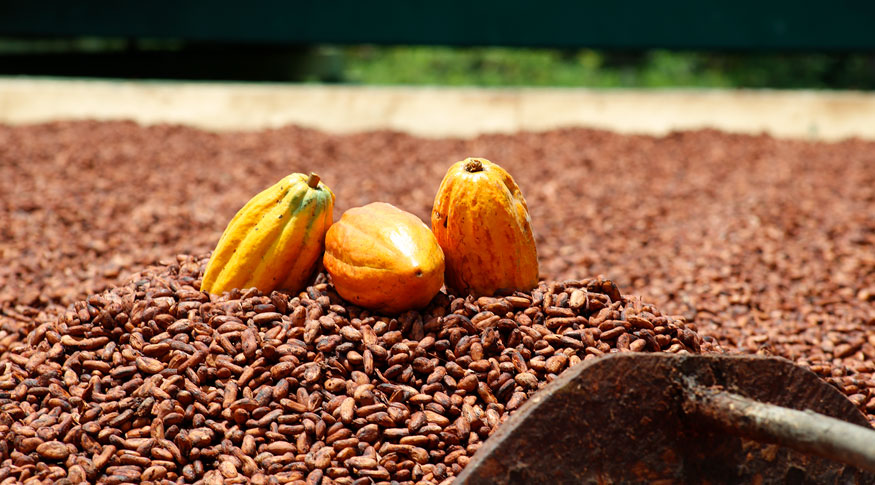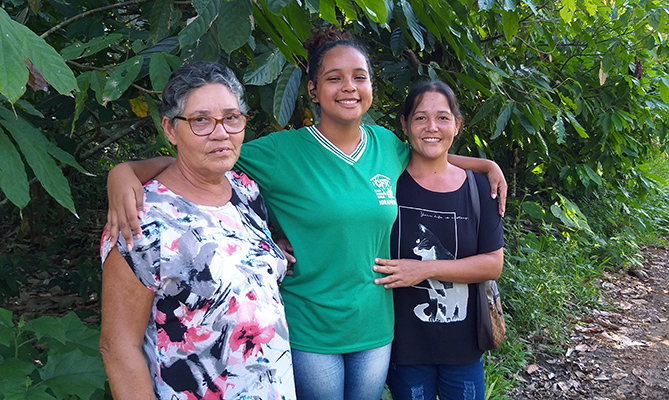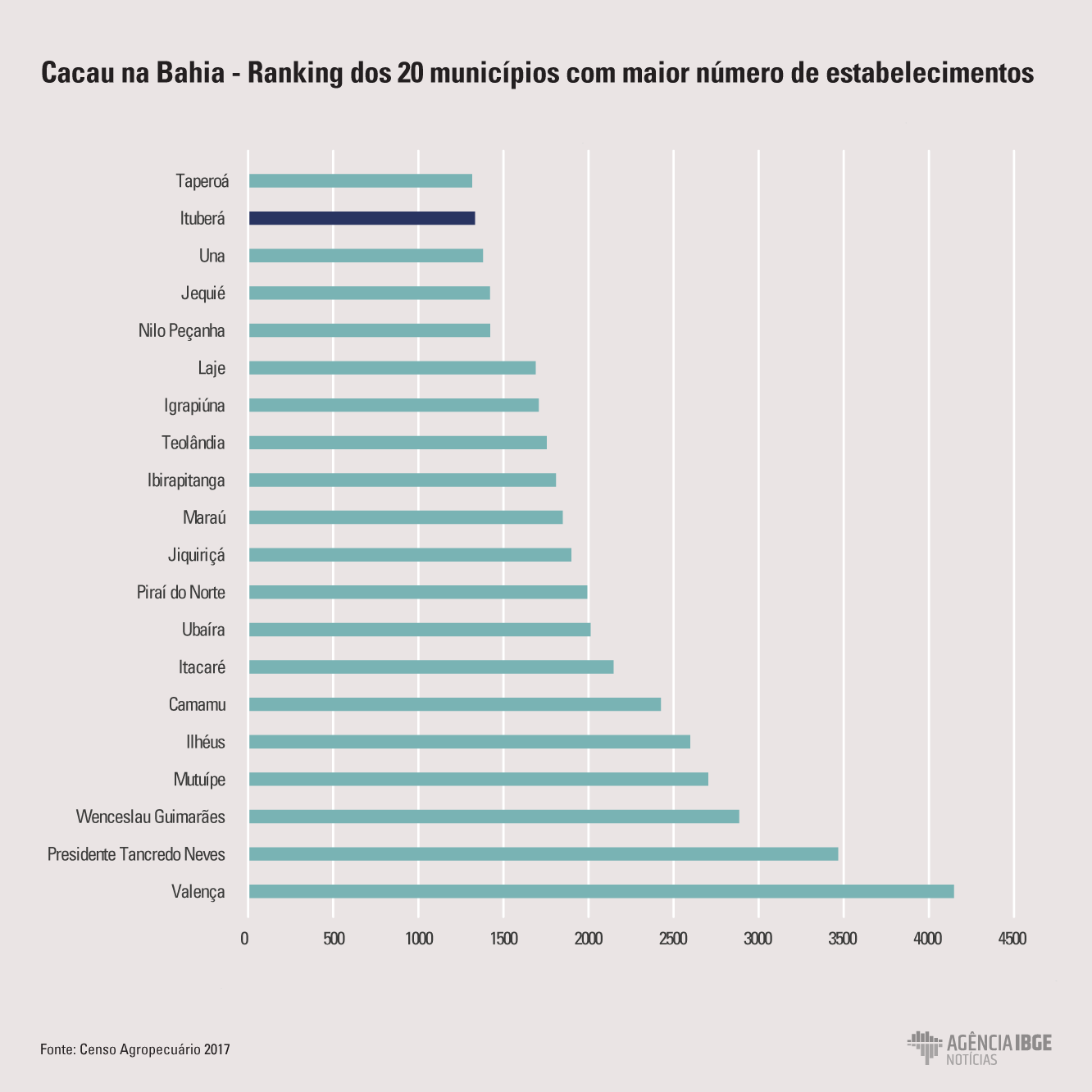Censo Agropecuário
In Bahia, sons of Japanese invest in cocoa
December 27, 2019 02h00 PM | Last Updated: December 30, 2019 02h45 PM

The production of cocoa has great economic importance for the state of Bahia - Photo: South Bahia Cocoa Association - ACSB (dissemination)
Last December 18 was the International Migrants Day. In Brazil, the presence of migrants from several countries brought significant contributions to our agricultural production, especially Germans, Italians and Japanese. The Japanese arrived in Brazil mainly in São Paulo, where they were dedicated to coffee, but also spread throughout the South and Northeast, varying their production according to the region, like black pepper and fruticulture in Bahia.
According to the the data of the Nippo Brazil website, three Japanese settlements were created by the Brazilian government in Bahia between 1953 and 1962, aiming at populating and developing unproductive and virtually abandoned areas. The municipalities of Una, Mata de São João and Ituberá – the last one located 170 km far from Salvador, in the Lower South Bahia – received dozens of Japanese families.
The father of farmer Yuriana Kuratani, 38 years, was one of those migrants. Then 9-year old Yoshimasa Kuratani, his parents and five siblings landed in the port of Ilhéus (BA) in 1957, running away from a huge downturn in his home country, devastated by the effects of the Second World War. They were forwarded to Una when they arrived, though they moved to Ituberá three months later. "The climate was very dry in Una and the soil, bad for cropping. Torao, my grandfather, knew that other Japanese families proceeded to Ituberá, since the land was good there, and they departed too", tells Kuratani.
Working as a baker, Kuratani´s grandfather served in the Japanese Navy during the Second World War. Here in Brazil, his first business was cropping palm, from which he lost money. "Things began to improve when he started to produce black pepper. He began to buy more pieces of land and improved the production".
Kuratani´s father grew up and fell in love with a Bahia native. His parents did not like his marriage, as they wanted a Japanese bride. "My four siblings and me, the youngest sister, were born from this union. By means of the settlement neighborhood association, we learned a lot from our culture and we had Japanese classes during our childhood", details the agricultural producer, who even lived in Japan for five years between 2003 and 2008, and returned to Ituberá to live on agriculture.
"My father died in 2015 and left three hectares and half for each one of his children. I take care of my area and those of two siblings, who do not live in the rural area. I produce banana, papaya, passion fruit, clove, but cocoa is our major business. Cocoa is wonderful for us! I want to invest more in cocoa, as it represents incoming money throughout the year", celebrates her.
Cocoa is part of the Bahia´s identity. Bahia is the biggest producer since 1970, when the Census of Agriculture began to register the production of cocoa per state in Brazil. Pará has been increasing its production in recent years, while Bahia has faced problems like the witch´s broom disease in the 1990s and drought since 2015. Even so, the production of cocoa nut in Bahia surpassed 85.2 tonnes in more than 69 thousand establishments in 2017.
One of the ways of adding value that has been adopted by the cocoa producers in Bahia is the investment in specialization and in the improvement of the nut, generating sub-products like cocoa butter, cocoa powder and nibs (roasted grainy nut).

From the right: Yuriana Kuratani, her daughter Lana and her mother - Photo: Vívian Barbosa
Today, the municipality of Ituberá, where Kuratani lives with her family, is among the 20 biggest producer of cocoa in Bahia, in terms of amount produced. Lana Kuratani, 17 years, is Yuriana Kuratani´s only child and a reason for pride and hope in the new directions of the production. The young girl is attending the vocational school in agribusiness and gets prepared to help her mother to look for new markets and strategies to improve cocoa.
"We think of producing chocolate. It would be a value added product, since our fertilization is completely natural, free from chemicals", tells Yuriana Kuratani, who also reveals a great concern with the environmental preservation in the region. "A river flows through our property and we manage to keep to preserve the bushes in order to not compromise the water", concludes her.





















